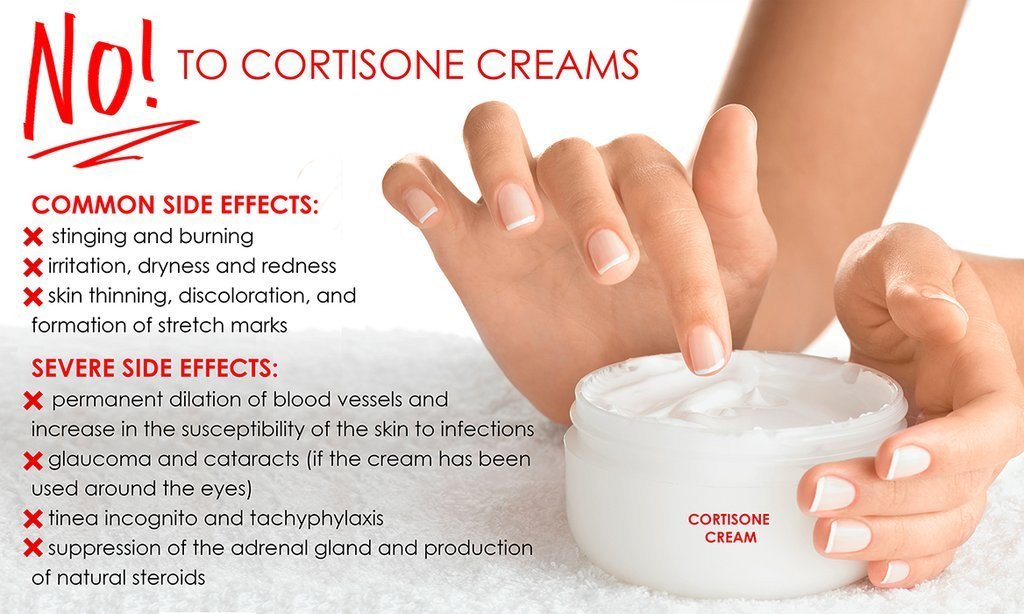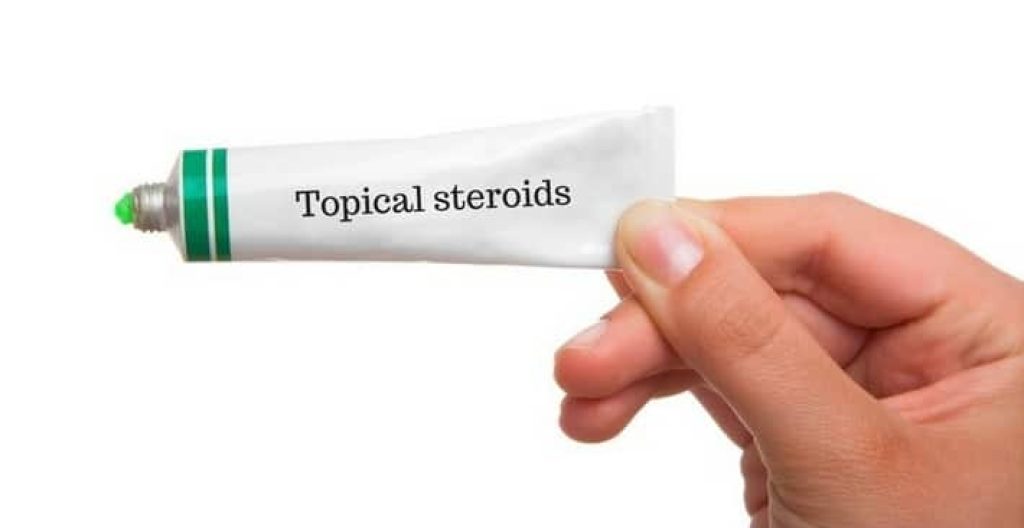Cortisone cream is a topical steroid applied to relieve redness, swelling and itchiness of Eczema, Dermatitis, Psoriasis, Vitiligo and other inflammatory skin conditions.
Hydrocortisone is available in over-the-counter products such as DermAid, Sigmacort, Temovate, Psorcon, Diprolene and Cortic, or by Prescription from a Doctor or Dermatologist.
Steroids work by SUPPRESSING THE IMMUNE RESPONSE of the body. This will prevent inflammation. This in itself should ring alarm bells. The immune response is there to protect you. If you hinder that response, it will have detrimental ramifications.
Unfortunately cortisone creams seem to be the quick “go-to” cream of choice for Dermatologists, over-prescribed, without hesitation or caution!
Yet topical steroids, such as cortisone, are associated with an array of potential side effects affecting the skin and other body systems.
It seems that these side effects are just not being discussed with people prior to prescribing:
Side effects of cortisone cream:
- Hypo-pigmentation
- Wrinkles and reduced collagen supply
- Thinning of the skin and slow wound healing
- Stretch Marks (striae)
- Bruising or ulceration in the skin
- Discolouration of the skin
- Spider veins (telangiectasias)
- Acne
- Rosacea
- Peri-oral dermatitis
- Reduce skin healing and regeneration
- Hypocalcemia – from prolonged use it will reduce calcium levels in the blood, which can lead to muscle cramps and bone loss as well as impaired nerve function, depression and memory loss
- Reduce circulation to the skin
- Cellulitis
- Impetigo
- Fungal and staphylococcal infections in the skin
- Tinea
- Glaucoma – if used around the eyes (it damages the optic nerves) because the skin around the eyes is 300 times more absorbable than the rest of the face
- Cold sores
- Molluscum contagiousum
- Endocrine disruptions eg Gynomastia (breast enhancement in boys) when used for longer periods of time or over large surfaces of skin
- Hypertrichosis (excessive hair growth on body)
Cortisone Caution: Never use cortisone cream on the eyes, genitals or bottom, or on broken or infected skin.
Children’s skin is super sensitive, so they are even more susceptible to the side effects of these topical steroids, and therefore steroids should be avoided in children…but they are not being avoided!
In some countries such as India and China, where it is trendy to have whiter looking skin, beauticians are selling steroid creams for their skin-lightening effects. Patients can also continue to self-medicate and over use the cream…which can have disastrous effects on their hormones and immune systems. The face and genitalia in particular are at high risk as mentioned above.
In the natural medicine world of treating chronic eczema or dermatitis, it is far better and more effective to look deeper into the cause of the condition, rather than to manage the symptoms, with cortisone, that could cause harm to both the skin and body.
I have assisted thousands of adults and children, discover the cause of their skin conditions (without the use of cortisone), with successful outcomes of clear skin and a stronger skin barrier.


